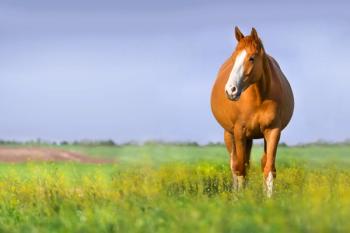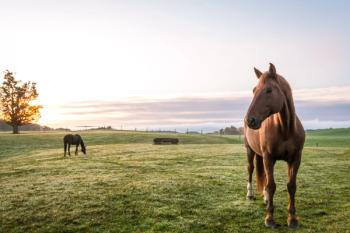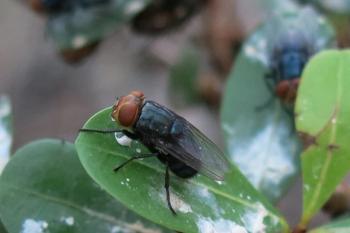
Horse industry asks for identification
Bowling Green, Ky.-Food animal identification to promote food safety and disease outbreak prevention has been endorsed for years - if only the same were true for the horse industry, its proponents argue.
Bowling Green, Ky.-Food animal identification to promote food safety and disease outbreak prevention has been endorsed for years - if only the same were true for the horse industry, its proponents argue.
Their concerns may soon be over, thanks to support from the NationalInstitute for Animal Agriculture (NIAA), an industry organization.
Formerly known as the Livestock Conservation Institute, NIAA sponsoredthree livestock identification conferences in the late '80s and '90s. Itis now organizing its first joint National Food Animal and Equine IdentificationSymposiums, July 29 to Aug. 1 in Chicago.
In conjunction, the conference will feature manufacturers and serviceproviders in the animal identification and information systems business.
Dr. Timothy Cordes, an equine practitioner for nearly 18 years who isnow senior staff veterinarian for the U.S. Department of Agriculture, ischair of a planning committee for the equine identification symposium.
Post 9/11 interest?
Equine identification, according to Cordes, is not a result of 9/11,nor is the federal government driving it in any capacity. "We haveno interest in regulating it," he says.
"This has been an issue for the better part of a decade. For a longtime, the food animal industry has realized the need to identify animalsback to the farm for all the obvious reasons, including food safety anddisease outbreaks," says Cordes.
But the horse industry has lagged behind until now. Equine identificationsupporters have turned to NIAA for sponsorship of the symposium.
Foremost goal
The overriding intent of the event is "to encourage the equine industryto embrace some kind of identification system," says Cordes.
This industry breeds diversity, literally, with an array of horse breedsand classes as performance or nonperformance animals.
"We're not fooling ourselves to think for a moment that we're goingto get the entire horse industry to embrace a single system," he says."Our intent is to encourage the horse industry to embrace an identificationsystem, first and foremost, that would not endorse a specific modality.
"Nobody in the group (symposium) is selling smart card, microchips,retinal ID, DNA tattooing. What we are trying to accomplish is that whatevermodality they select will virtually provide a unique, permanent number,"he explains.
No two horses alike
If everything proceeds as planned, each horse would be implanted - mostlikely in the neck - with a unique, permanent alpha-numeric number thatwould be translated into a computer number.
The number can then be included on health certificates, Coggins form,passport, or other identification, explains Cordes.
Ultimately, that number would wind up in a database for each breed. Currently,groups such as the American Horse Council, the USDA, or even the AAEP, arenot volunteering to run such a database, but the breed registries have expressedinterest.
Different breeds, different needs
To convince the horse industry of the necessity of identification involvesa bit of cleverness on the part of equine ID advocates to promote many perspectivesin an attempt to appeal to all parties.
Promoting identification means acknowledging its importance to internationaltrade, theft prevention, welfare, existing diseases, emerging diseases andcost benefit analysis, according to Cordes.
"If you take a rancher in western Texas, he might not think he has(to worry about) EIA, but he sure should be concerned about horse theftor Western Equine Encephalitis, for example. "It's a very diverseworld for horse owners. We're hoping to be smart enough to look at thisequine identification issue from many different perspectives."
Other driver
The USDA-APHIS estimates it will be paperless by 2003 for numerous certificates.Thus far, none of those are equine-related, but Cordes says their time isnear. The identification process, he says, will nudge the industry in thedirection it is already heading.
Will the cost ultimately be passed onto the owner? "Yes it will,"says Cordes. "Whether it's the state veterinarian or your equine practitioner(installing the identification system), I'm confident most or some of thecost will have to be defrayed through the owner."
Symposium details
Three major participants in the identification project are the AmericanHorse Council, the American Association of Equine Practitioners and theAmerican Veterinary Medical Association.
All equine practitioners are invited.
The symposium is funded by NIAA.
For more information, contact Dr. Timothy Cordes, USDA-APHIS at (301)734-3279 or e-mail timothy.r.cordes @aphis.usda.gov.
Newsletter
From exam room tips to practice management insights, get trusted veterinary news delivered straight to your inbox—subscribe to dvm360.






